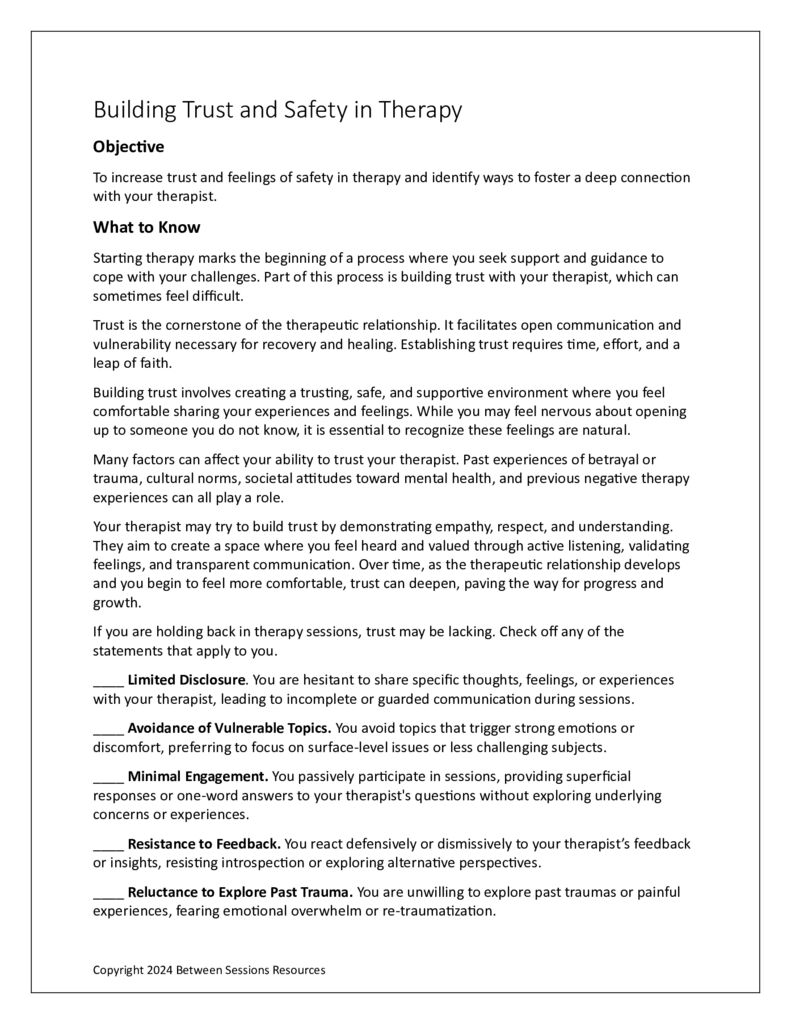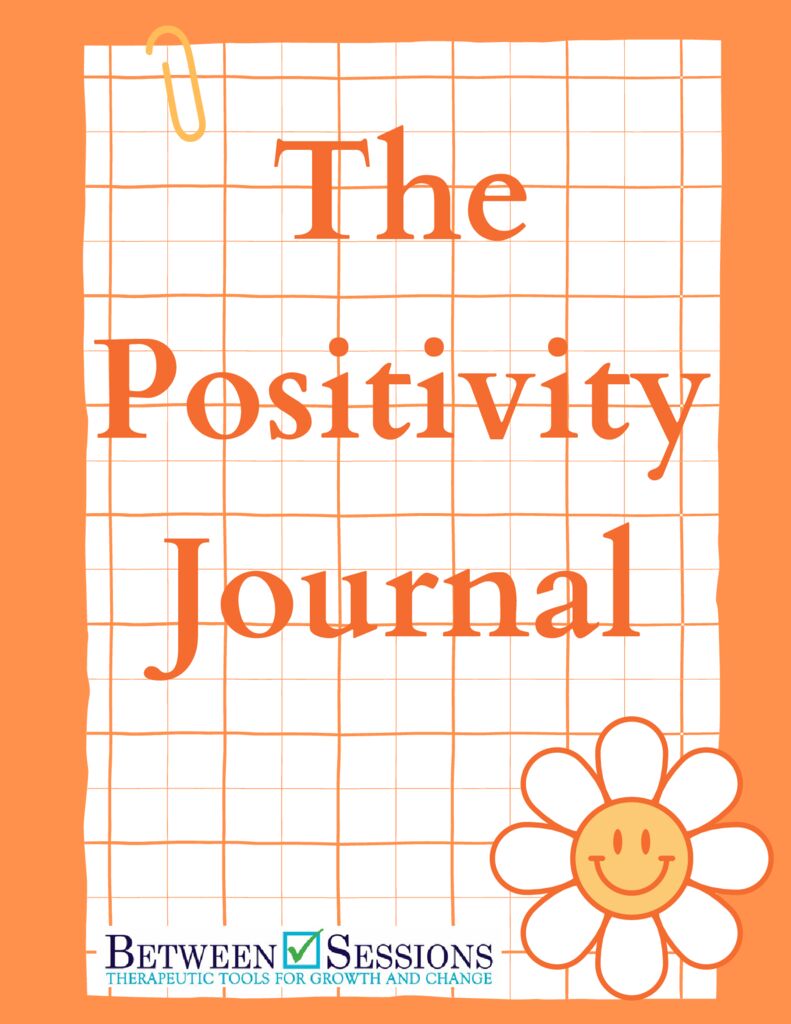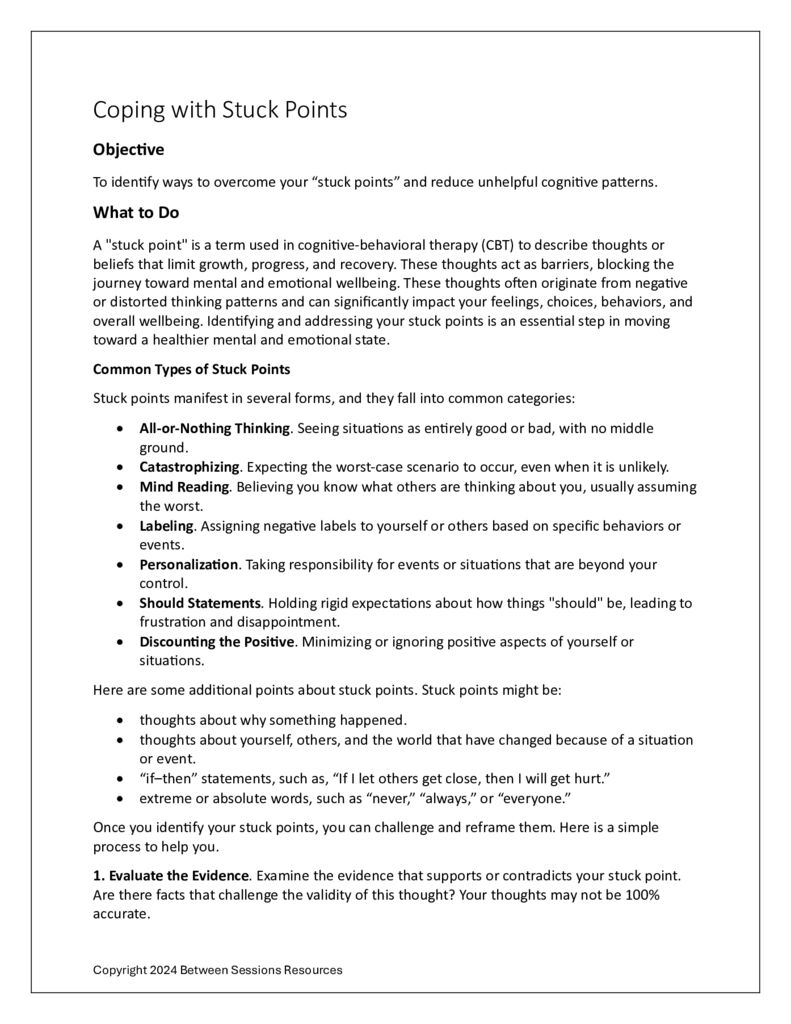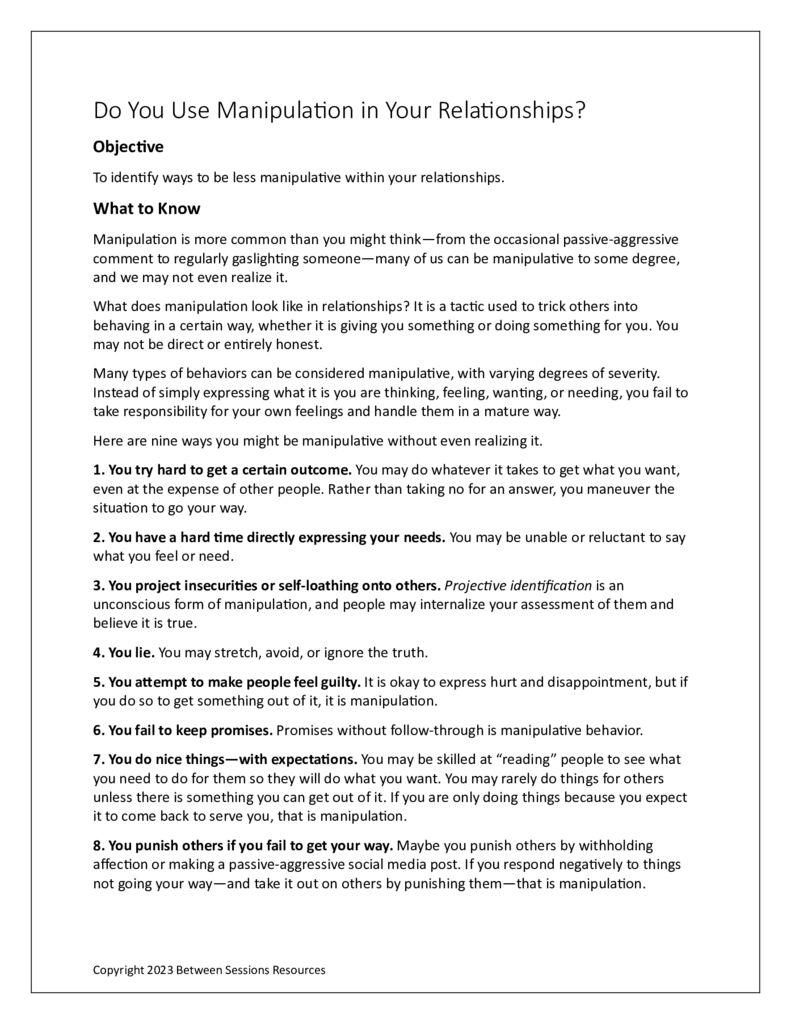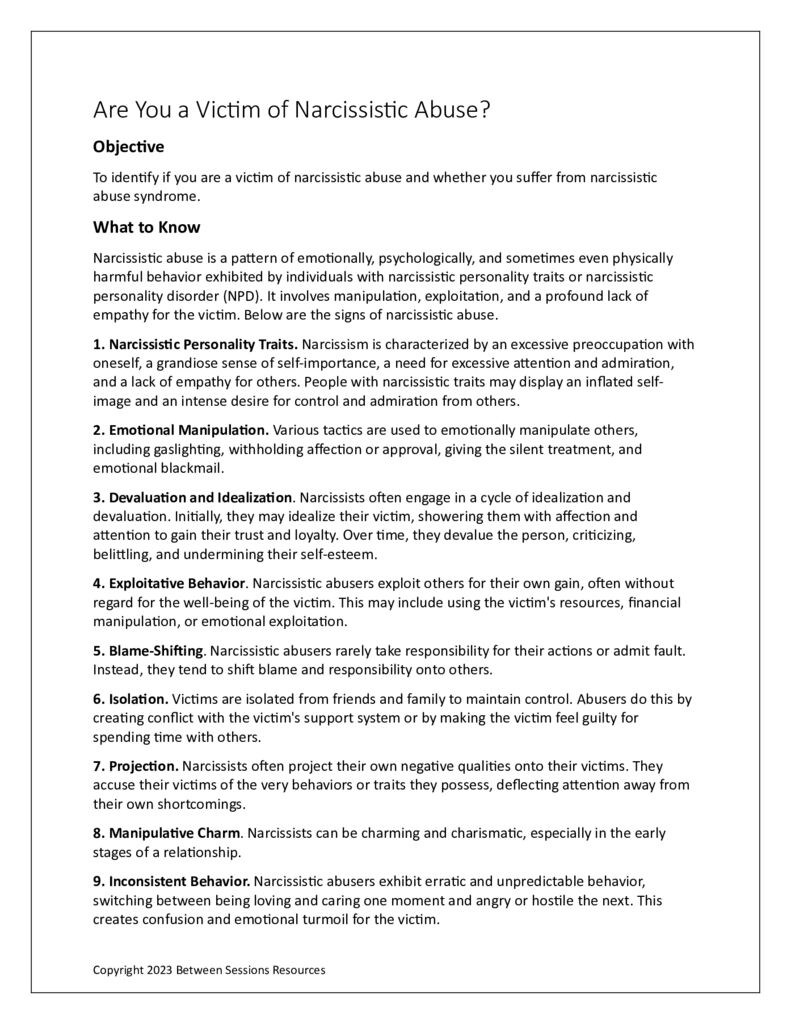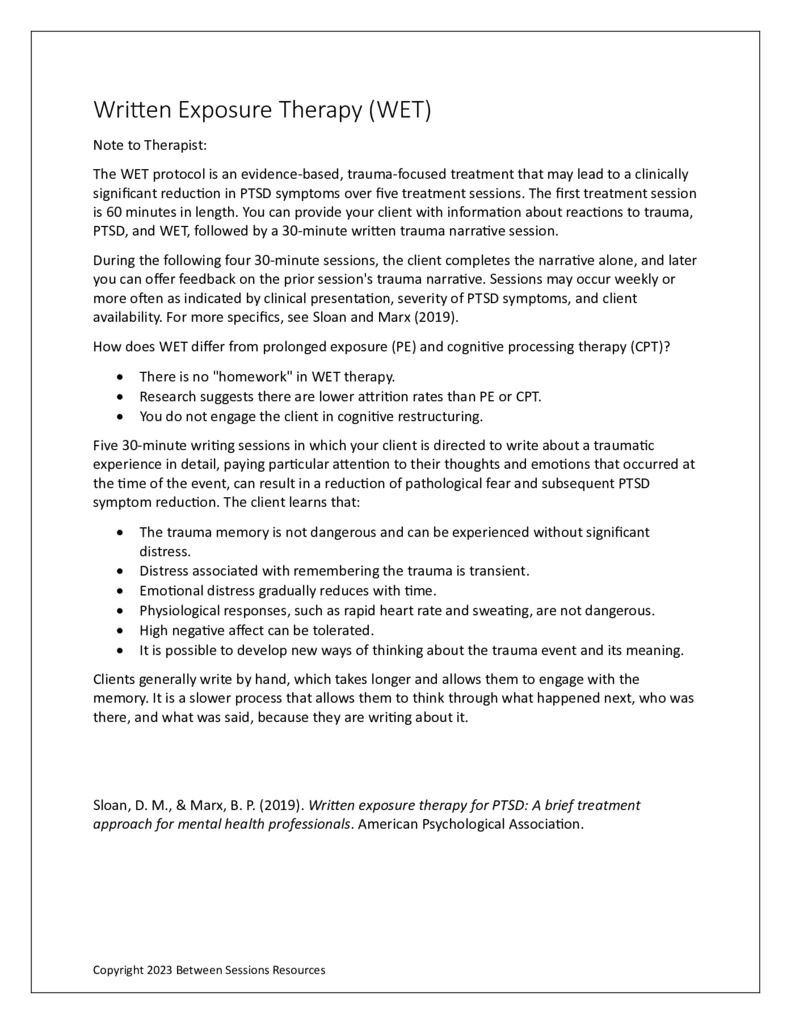Sometimes clients may be resistant to therapy or counseling because of previous negative experiences in getting help. This worksheet asks clients to think about their concerns, including increased vulnerability, fear of emotional dependence, financial strain, and so on. It presents questions for the clients to help them determine how past experiences might affect their current commitment to growth and change. (0424, growth, progress, trauma)
This worksheet can be used with clients who may have trust issues when starting therapy or counseling. It asks people to explore how trust issues are affecting their therapy work, such as limiting disclosure, reluctance to explore past trauma, inconsistency in attendance, and so on. It also offers even ways for clients can build trust and get the most out of their therapy or counseling sessions. (0424, trust, therapeutic alliance, progress)
This journal is designed to use the principles of positive psychology to help people develop a more optimistic view of the world. The daily worksheets are designed to help people identify their mood, develop the habit of gratitude, pay attention to positive events, and work towards their goals. The Journal consists of 31 pages for a month’s worth of entries. (0224, positive psychology, daily journal, optimism, CBT).
A “stuck point” is a term used in cognitive-behavioral therapy (CBT) to describe thoughts or beliefs that limit growth, progress, and recovery. These thoughts act as barriers, blocking the journey toward mental and emotional well-being. This worksheet explains common types of “stuck points” such as mind-reading, personalization, “should” statements, and so on. People are asked to identify their dysfunctional thinking and how it affects their emotions and behaviors. (0124. CBT. cognitive behavior therapy, irrational thoughts).
Manipulation is a tactic used to trick others into behaving in certain ways. This worksheet details the signs of manipulation and helps people understand how they can create healthier relationships by reducing manipulative behaviors. (1023, narcissism, NPD, manipulation, relationships, BPD, borderline personality disorder, narcissistic personality disorder)
Narcissistic abuse is a pattern of emotionally, psychologically, and sometimes even physically harmful behavior exhibited by individuals with narcissistic personality disorder. This worksheet details the signs of narcissistic abuse and helps people understand the symptoms of Narcissistic Abuse Syndrome. (0923, narcissism)
The WET protocol is an evidence-based, trauma-focused treatment that may lead to a clinically significant reduction in PTSD symptoms over five treatment sessions. (0923. exposure, trauma, PTSD, short-term therapy)

